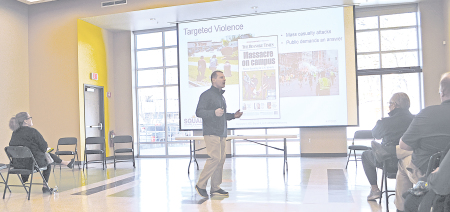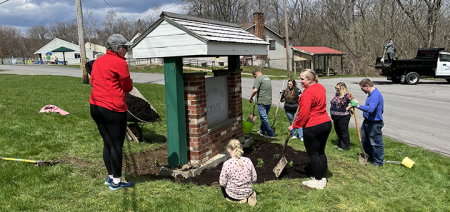For The Health Of It: SIDS Awareness Month
Published:
October 4th, 2022
CHENANGO COUNTY – Infant Mortality is a serious issue that affects our nation’s health and the health of our local community.
October is SIDS Awareness Month. SIDS stands for sudden infant death syndrome. SIDS is the sudden, unexplained death of a baby younger than 1 year of age that does not have a known cause even after a complete investigation is performed.
SIDS is not a death due to accidental causes, such as suffocation, entrapment, or strangulation. A safe sleep environment can help reduce the risk of SIDS and other sleep-related causes of infant death, like suffocation.
The Chenango County Health Department is urging everyone to learn the basics about current best practices and recommendations to keep babies safe. It’s important for all caregivers—parents, grandparents, aunts, uncles, babysitters, child-care providers, and everyone who might care for baby—to learn about safe infant sleep to help reduce baby’s risk. The Nursing Division does have a program for eligible parents to receive a free pack n play if there is a need. The program is called Project Safe Sleep and it is by partner agency referral only. Parents must take part in an education session to receive the free item and be income eligible.
In June 2022, the American Academy of Pediatrics updated the recommendations for a safe infant sleeping environment. The full research paper can be found online at (www.aap.org/en/patient-care/safe-sleep/)
Always place your baby on his or her back for all sleep times.
Always use a sleep surface for baby that is firm (returns to original shape quickly if pressed on), flat (like a table and not like a hammock), level (not at an angle or incline), and covered only with a fitted sheet.
Share a room with baby for at least the first 6 months. Give babies their own sleep space (crib, Keep soft objects or loose bedding out of the crib. This includes pillows, blankets, bumper pads, stuffed toys and any clutter. No objects, toys, or other items should be in the crib. Use of a sleep sac to keep warm is recommended, rather than blankets.
Get regular medical care throughout the pregnancy. Follow health advice on vaccines, checkups, and other health issues for baby.
Stay smoke free and vape free during pregnancy and keep baby’s surroundings smoke and vape free.
Stay alcohol free and drug free during pregnancy and make sure anyone caring for baby is drug and alcohol free.
Feed your baby human milk. Exclusive breastfeeding is recommended and reduces the risk of SIDS.
Offer a pacifier at naptime and bedtime once baby is feeding well.
Avoid letting baby get too hot and keep baby’s head and face uncovered during sleep.
Avoid products and devices that go against safe sleep recommendations, especially those that claim to help prevent SIDS and sleep related deaths.
Avoid using heart, breathing, motion, or other monitors as a way to reduce SIDS.
Avoid swaddling once baby starts to roll over (usually around 3 months old) and keep in mind that swaddling does not reduce SIDS risk. Do not use weighted swaddle blankets.
Give baby plenty of “tummy time” when they are awake and when someone is watching them.
Another message to remember that is more simplistic is the ABC’s of Safe Sleep:
ALONE – No co-sleeping, nothing in the crib
BACK – Place baby on their back on a flat, firm, level surface
CRIB – Use of a recommended sleep area
Infant deaths due to unsafe sleep environments are largely preventable. It is important to educate everyone, even if you do not have a baby. You may need to carry the message on to someone else. It is important to begin the conversation before baby is born and to make sure all caregivers get the message.
For more information:
National Institute of Health: safetosleep.nichd.nih.gov
The Consumer Product Safety Commission: www.cpsc.gov/SafeSleep
WIC and the Dept of Agriculture: wicworks.fns.usda.gov
– From the Chenango County Department of Health
Comments








